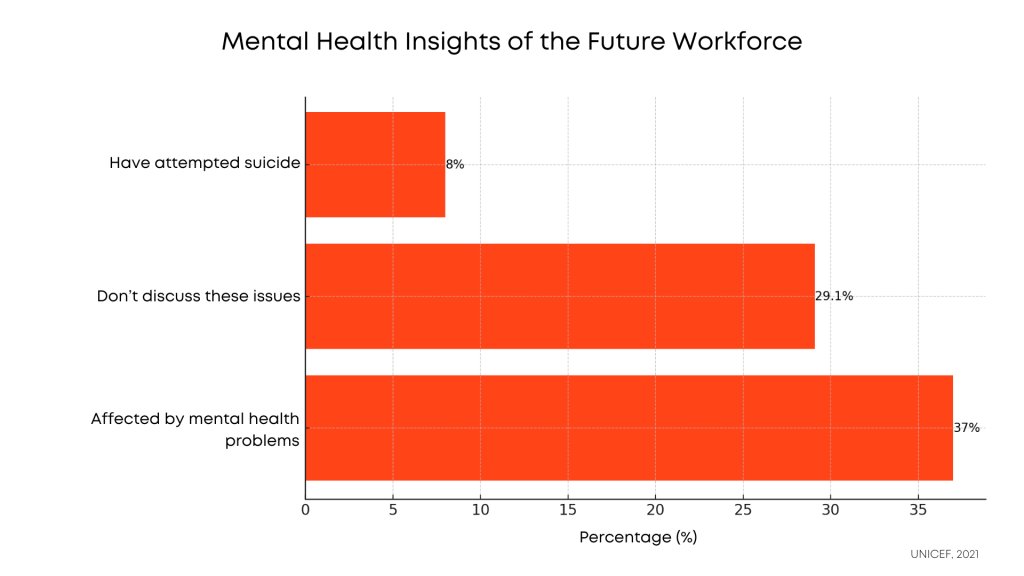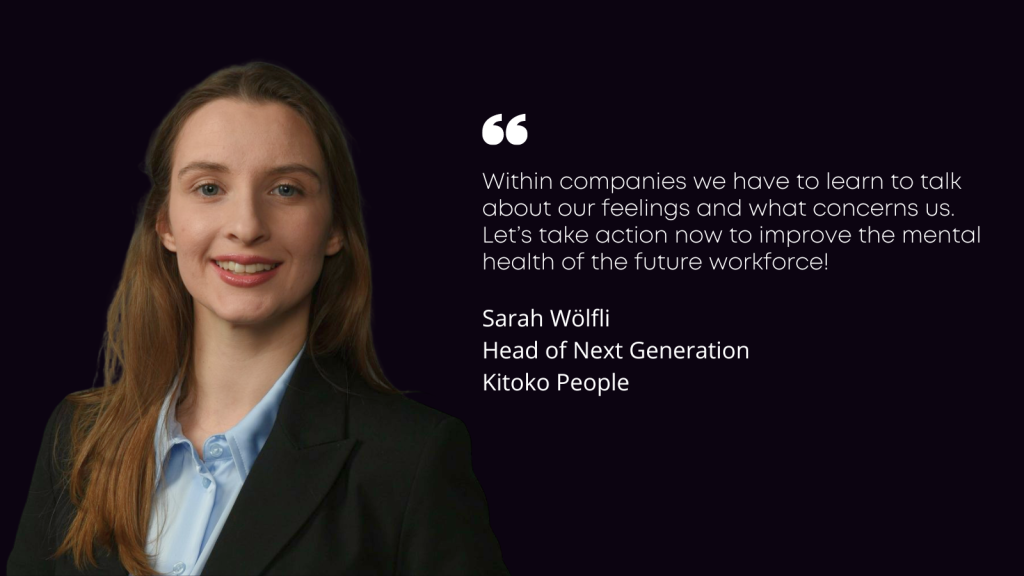In this article, we write why the mental health of the future workforce is an important issue and what possible actions can be taken.
In our blog about short time absences, we wrote about the concerning results regarding the mental health of young adults. While only 8% of those over 65 reported being absent from work due to mental issues, this figure stood at 44% among individuals aged 18 to 35.
The study by UNICEF on the mental health of the future workforce revealed that:
- 37% of the 1100 respondents are affected by mental health problems
- 29.1% don’t talk to anyone about these issues
- 8% have attempted suicide.
 Moreover, the pandemic reveals itself as a potential driver of poor physical and mental health. One quarter of the respondents stated that their physical health had deteriorated since the beginning of the pandemic. 47.1% rated their mental health worse than before the pandemic.
Moreover, the pandemic reveals itself as a potential driver of poor physical and mental health. One quarter of the respondents stated that their physical health had deteriorated since the beginning of the pandemic. 47.1% rated their mental health worse than before the pandemic.
These are alarming measures and call for action.
If we collaborate with companies and their future workforce, we want to share the following best practices to their HR departments:
- Incorporate check-ins: Before delving into professional topics and agendas, each team member briefly shares how they are doing and what is currently on their mind. This allows the younger audience to initially discuss personal matters that may be weighing on them. That works really well for us.
- The stigma surrounding mental health services must be dismantled. This can only happen if we learn within companies to talk about our feelings. Substantial efforts in development programs are required, targeting both young people and adults.
- Programs need to be developed for and with adolescents. Only through direct dialogue with young people can it be determined how they use services and what is lacking in their care. Every young person should feel entitled to seek help. Services should be easily accessible and have sufficient capacity.
- Interview and monitor the well-being of the future workforce.
- Present the relevance through data and surveys in the top management board and provide clarification!

Last but not least a mentally healthy workforce is key to improved staff retention, enhanced work performance, and increased productivity. In the service sector, where employee satisfaction directly impacts customer experience, prioritizing mental health is not just beneficial but necessary for sustaining business success.
At Kitoko People, we help to understand, develop and retain the future workforce. Interested? Contact us or subscribe to our newsletter.




